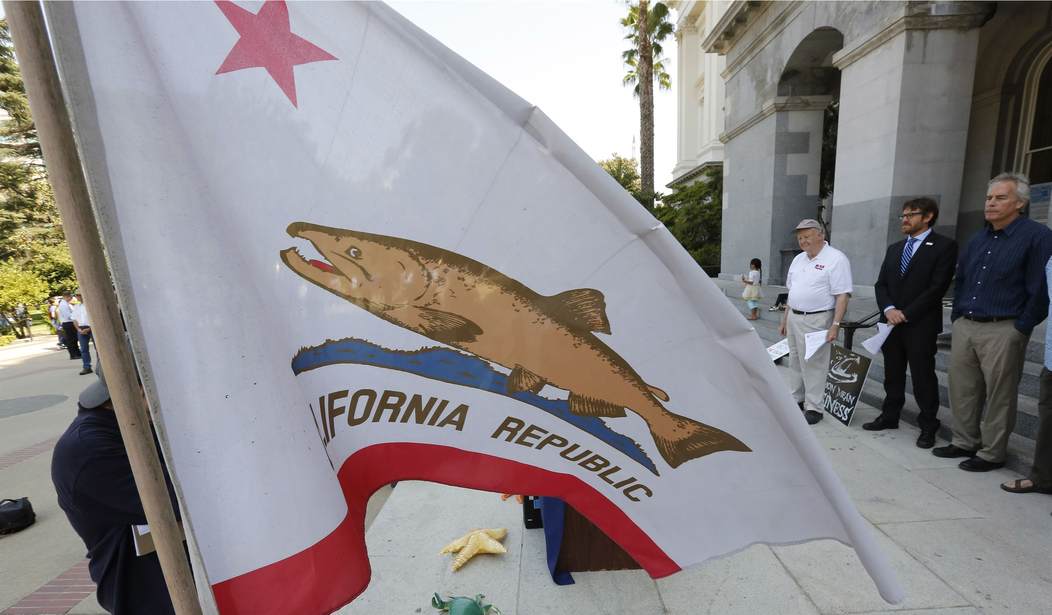A legal showdown is in the offing between gun rights groups and California over a controversial program that is intended to fight gun violence. Pro-gun activists have brought another lawsuit against the state of California over a program that they argue is in violation of the Constitution. The program’s supposed purpose is to find ways to curb gun violence by handing over gun owners’ data to research groups to analyze.
Opponents of the measure argue that the program violates people’s right to privacy along with the Second Amendment. The situation was made even more controversial when information on California gun owners was inadvertently leaked to the public.
The battle over this program has been ongoing, but this new legal action might take the conflict even further:
California is the epicenter of American gun violence research, largely because it maintains an extensive repository of firearms data and, unlike other states, has historically made much of the data available to scientists studying the root causes of gun deaths.
A lawsuit brought by gun-rights activists now threatens that longstanding data infrastructure. And although the federal government began funding gun-violence research again in 2019, following a two-decades-long drought, that funding is under threat from House Republicans, who have vowed to kill it.
Scientists have only begun to understand the factors that put Americans at risk of firearm injury. The double blow of ending federal funding and cutting off researchers’ access to California’s data could set the field back years.
California keeps stringent records on gun owners residing in the state. The hope is that this information can help officials better understand what leads to gun violence:
The records made public last June were gathered as part of an effort to quantify and publicize how many Californians were seeking to carry a concealed firearm in public. The state also keeps meticulous data regarding every firearm transaction — every sale, every transfer. Under California law, even private gun transactions must happen through a retailer. The state maintains a single file that records every legal handgun transfer since 1996 and every rifle and shotgun transfer since 2014. No other state has anything like it.
However, the reason why pro-gun groups oppose this policy is that it exposes private information and could have a chilling effect on those who want to keep and bear arms. In October 2022, a San Diego County judge temporarily blocked the law. This meant that the state could no longer share gun owners’ information with research groups.
Unfortunately, Judge Larry Alan Burns issued a ruling in favor of California’s program in January this year. In the case of Doe v. Bonta, he rejected the plaintiff’s argument that the law violated the Second Amendment. Burns held that the state disclosing the information to research groups, as long as it was done under strict protocols to protect privacy, does not run afoul of the Constitution.
The judge also rejected arguments that disclosing people’s personal information to third parties violated privacy rights. The court also dismissed claims that the law violates due process as well.
Nevertheless, those supporting gun rights are not backing down just yet.
Those supporting California’s law would likely argue that the program is somehow critical to helping the government understand the factors that contribute to gun violence. The thinking is that it would help them craft policies that would decrease homicides. If it works in the Golden State, then other states might try something similar.
This all sounds wonderful, doesn’t it? Nobody wants to see gun violence increase. Unfortunately, this program has more issues than it is worth.
The privacy concerns are 100 percent valid. The fact that California “accidentally” leaked the information of gun owners to the public shows just how precarious such a program can be. But even if the state manages to keep the information between it and the research groups, it still means people’s personal data is being exposed – in most cases, without their knowledge. No government should be able to share people’s information without permission, even if they are supposedly using it to decrease gun crimes.
The next point to consider is what this information will be used for. Does anyone actually believe that this data will be employed to curb gun crime? It seems far more likely that they will leverage it to pass even more gun restrictions that will not keep anyone safe. The anti-gunners’ sole focus has been to disarm as many Americans as possible instead of actually dealing with the crime issue. It is difficult for me to believe that the information the state shares will be used for anything other than justifying more gun control laws.
This brings me to my next point. If this data is used primarily to pass gun restrictions, then it won’t fulfill the purpose for which this program was ostensibly created. Criminals will still possess firearms that they will use to victimize law-abiding folks. When fewer Americans are armed, it makes it easier for bad actors to harm them. Essentially, the state is using money that it takes from citizens to make them more vulnerable.
The debate will continue to rage on as the fate of California’s program remains uncertain. The conclusion of this conflict will determine whether this will end with liberty being protected or the state being strengthened.













